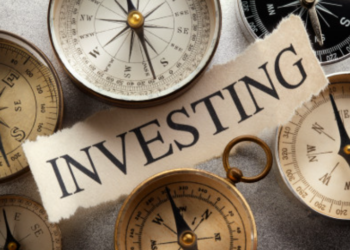Let’s play a little game. Go to Google with the keywords: “Should I buy, hold or sell Apple stock?”
It is very likely you’d find many expert views that directly contradict each other. The term “expert” in finance then should be taken with a pinch of salt.
For many areas of science, knowledge and expertise is achieved by studying historical data. In medicine, a doctor can predict what is wrong with you by observing certain symptoms and sorting it based on historical data. This is because just like Morgan Housel put it “kidneys operate the same way in 2020 as they did in 1020.
But investing is not a hard science. It’s a massive group of people making imperfect decisions with limited information…
Kidneys don’t have emotions, neither does any organ in the body. Humans on the other hand do; and they make decisions based on these emotions which makes those decisions very skewed and predicting them a tedious task.
The problem with expert views.
History is not a prophet
“An economist is an expert who will know tomorrow why the things he predicted yesterday didn’t happen today .” – Laurence J. Peter.
Financial experts are better at explaining than predicting.
The job of financial experts can be likened to that of detectives. A detective could try and predict the actions of a criminal based on historical data he must have probably gathered dealing with other criminals, but human actions are too volatile and haphazard to be boxed into predictable outcomes. A detective’s strength abounds more in predicting the occurrences in a crime scene after they have happened and less in predicting them before they happen. The same applies for an financial expert trying to predict the market.
Many outlier events in financial history – the Great Depression of 1987, the Stock Market Crisis of 2008, etc – were only explained by economists and financial market experts after they had happened. Virtually none predicted them.
If expertise is based on the understanding of historical data then, again: Financial advice must be taken with a pinch of salt because in the financial market, history could be a very lousy prognosticator of future events. In the words of Scot Sagan “Things that has never happened before, happen every day.”
Financial advisers might be exposed to certain biases
Bias 1: If you ask an average investor for advice on what stocks to buy, majority of the stocks he would list are stocks he had already bought.
Bias 2: Conflict of interest. You have to remember that an average financial advisor prioritizes his profitability over yours.
Bias 3: Cognitive Dissonance: Most experts spent a lot of time, energy and resources learning what they know now. This can be dangerous because it might be difficult for them to let go of outdated strategies and ideas. This is called Cognitive Dissonance in behavioral finance.
Success in finance is about observing and acquainting oneself with recent patterns and not perpetually holding onto older ones.
These biases and many more not accounted in this article may expose an experts advice to flaws.
Seeking financial advise of course isn’t a taboo but the decisions of an investor shouldn’t only be impelled by financial advise – especially those sought randomly on the web – but also balanced with personal finance literacy.
Financial literacy
It is easy to think that financial literacy is only for those who can’t afford a financial advisor. To address this paradigm, let’s take a look at this headline from 2014.
‘Popstar Rihanna sues her accountant and financial adviser Peter Gounis, for “allowing” her to squander $9 million that nearly resulted in her bankruptcy.’
Even with a financial adviser, very poor financial mistakes could still be made. Everyone needs to be financially literate, rich and poor alike.
Importance of financial literacy while taking financial advice
- Emotional stability.
A good financial decision is not necessarily one with the potential of making the most profit but one with the potential of letting you sleep better at night. Knowledge reduces anxiety in many areas of life but especially in finance. If one throws something up, the knowledge of gravity fends off any worries of if the object would come down or not.
A financial literate understands the turbulences of the financial market and would rarely be given to panic which its consequence is always making a reckless decision.
- Keeps your advisor in check
If you’re a financial literate, you’re more likely to protect yourself from the biases of an advisor who must think things through and then organize the advise in form of a pitch, pointing out reasons rather than handing them over to you as infallible commandments of tablets of stones.
Conclusion
The essence of this article is not to point out why financial literacy or financial advice is a better option than the other but to see how both should compliment each other. Financial advice isn’t infallible and needs to be kept in check.
If you’re starting off in investing, prioritize your learning process. Understand the drivers in the financial market, what every breaking news means for you, be it an increase in Central Bank rates, stock splits and reverse stock splits, inflation, etc.
You ought to have a preconceived idea of what decision seems right before seeking advice.
If you ever find yourself researching a stock to buy, seek for reasons it is a good buy and then reasons it isn’t. Study the news and drivers around the stock and decide when or how to invest.














.gif)






